Buffalo State University
Data Science and Analytics Seminar Series Spring 2024
February 13, 2024 – SAMC 151 – 5:55PM to 7:05PM
Dr. Phillip Galbo
Director of Computational Pathology
Roswell Park Cancer Institute

Data Science meets Diagnostics: Exploring the Computational Pathology Landscape
Overview of the computational pathology department at Roswell Park's mission and role in revolutionizing pathology.
Highlighting ongoing projects in algorithm development, image analysis, and diagnostic prediction.
Illustrating how computational tools are seamlessly integrated into diagnostic routines.
Showcasing collaborative efforts with academic and industry partners for groundbreaking research.
Dr. Galbo holds a Ph.D. from the Albert Einstein College of Medicine, specializing in Cancer Bioinformatics. During this academic tenure, his research leveraged next-generation sequencing datasets to uncover and validate novel tumor-microenvironment interactions linked to cancer immune cell evasion, invasion, and plasticity. Before this, Dr. Galbo contributed to research at the Dana-Farber Cancer Institute, where he delved into the underlying epigenetic mechanisms associated with metastasis and immunotherapy resistance in prostate cancer. Currently serving as the Director of Computational Pathology at Roswell Park Comprehensive Cancer Center, Dr. Galbo is dedicated to advancing diagnostic capabilities and liquid biopsy development through algorithmic innovation. data justice. His interdisciplinary work spans environmental health, social science, and critical theory.
February 27, 2024 – SAMC 151 – 5:55PM to 7:05PM
ATTENDANCE REQUIRED for DSA students.
Amy Brombos, EdD
Data Dissemination Specialist
United States Census Bureau
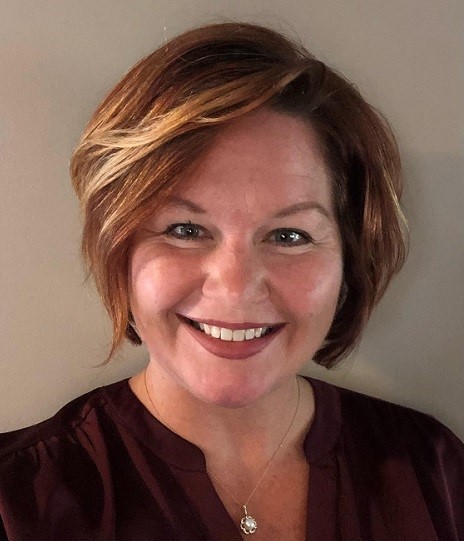
Demystifying federal data
How the Census Bureau documents every aspect of the nation's population, schools, governments, economics, and businesses.
How to access the 50+ Census Data Portals and Hubs.
How to navigate 1.5 million tables of data and create custom reports by geographies, topics, survey, and year.
How to fact check stories told with data.
What types of federal data jobs and internships are available and how to apply.
Dr. Amy Brombos serves as the Data Dissemination Specialist for New York State. Her experience in federal service began in 2018 as the Decennial Census Partnership Coordinator covering NYS. Prior to federal service Dr. Brombos spent over 20 years working in academia as a Teacher, District Data Specialist, Academic Researcher, and Adjunct Professor, teaching courses in Data Use for Continuous School Improvement, Accreditation, and Strategic Planning. Dr. Brombos is a graduate of the University of Hawai'i at Manoa and D'Youville University with Master's Degrees in Interdisciplinary Biomedical Sciences and Secondary Science Education, and a Doctorate in Educational Leadership in Higher Education.
March 5th, 2024 – SAMC 151 – 6:00PM to 7:00PM
ATTENDANCE REQUIRED for DSA students.
Link to the flyer!
DSA Seminar Series - Ms Katrina Herrington March 5th 2024.pdf
Ms. Katrina Herrington
Student

Magic Making: Unleashing AI Adventures For All
Gain awareness of everyday AI possibilities
Find motivation to explore technology
Discover links and AI prompt ideas to kickstart your journey
Explore ways to enhance the AI experience for everyone in the future
Katrina Herrington is a 6-year-old Kindergartner with two cats. She lives in a small town just outside of Buffalo, NY. She enjoys doing arts and crafts and making up stories during imaginative play. She aspires to be a teacher-mom. While she is still learning to read and write, she a very assertive creative director when it comes to making Artificial Intelligence art for her friends since Pre-K. Katrina hopes others will “Ask your parents to play with AI with you… so they can see your imaginary worlds and friends too!”. development through algorithmic innovation. data justice. Her interdisciplinary work spans environmental health, social science, and critical theory.
Computational Genomics, Data Science and AI Panel
April 2, 2024 – SAMC 151 – 5:55PM to 7:05PM
ATTENDANCE REQUIRED for DSA students.
Daniel McSkimming
Lead Bioinformatician of Veterans Health Association National Oncology Program
Artificial Intelligence in Medicine and Biotech
Machine learning approaches are growing in data analytics.
Analyzing imagery can improve cancer screening and detection.
Proteins can be modeled as language?
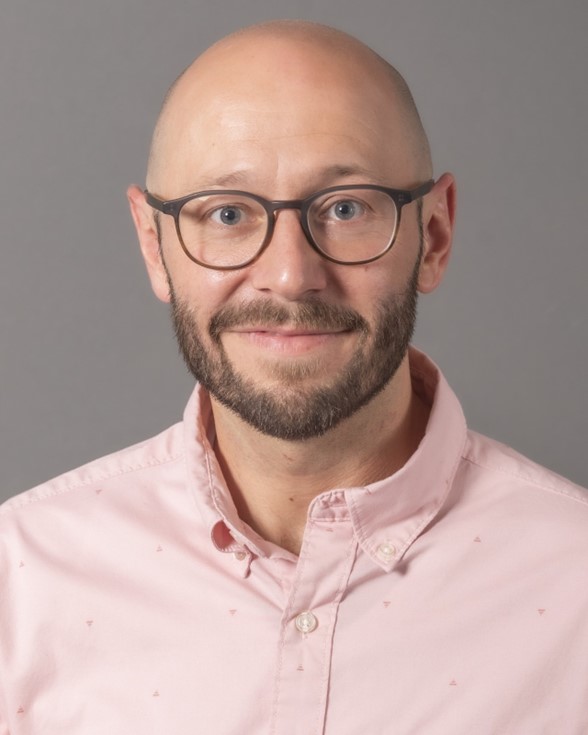
Daniel McSkimming is a Buffalo native, who grew up in West Seneca before attending the University at Buffalo for his bachelors and masters degrees in Mathematics. Prior to attending the University of Georgia for his PhD in Bioinformatics, Daniel worked a variety of data-oriented positions, including as a data manager for research labs, an actuarial analyst at Blue Cross Blue Shield, and served as an Intelligence Specialist in the United States Navy. He is currently the lead bioinformatician and supervisory data scientist for the Veteran Association's National Precision Oncology Program, where he uses gene sequencing technologies to identify medically relevant genomic variation in veterans with cancer. Daniel has authored over 2 dozen papers, created and deployed machine learning solutions to complex problems, and enjoys exploring the ability of deep learning networks to act creatively.
Mark Gallo
Biology Professor at Niagara University
Annotation and analysis of novel Staph bacteriophage genomes
isolation of phage - easy, right?
DNA sequence analysis - why so many holes
genome annotation - guilt by association
challenges and triumphs with undergraduate researchers

Dr. Mark A. Gallo is the Jack Hughes Endowed Program Director of Pre-Professional Health at Niagara University. He began his education at the University of Pittsburgh where he received his B.S. in Biochemistry and Biophysics and then his M.S. in Biochemistry from the University of Pittsburgh Medical School. He then went to Cornell University where he received his PhD. in microbiology for his research on the evolution of metabolic pathways in bacteria. Afterward Dr. Gallo pursued post-doctoral research at the University of Wisconsin-Madison School of Pharmacy where he helped elucidate the genetic pathway for the synthesis of daunorubicin/doxorubicin in Streptomyces. He has been at Niagara University for the past 28 years where he continues to host an active research program with undergraduate students. His interests include the properties of Staphylococci associated with wild animals, notably their antibiotic resistance profiles. Recently Dr.Gallo has been productive with respect to the ability to isolate bacteriophage that can kill Staph which can also be isolated from mammals with the end goal being the identification of strains useful for phage therapy.
Phillip Shults
Research Entomologist
USDA-ARS
Delimiting species with genomics and machine learning
Some insects can transmit disease causing pathogens and it is imperative that we be able to accurately identify these species.
We used SNP data, obtained from genome sequencing, to investigate cryptic species in an group of insects.
We used a random forest algorithm to optimized a set of molecular markers for species identification.
The research branches of the government are always looking for computational biologists or bioinformaticians.
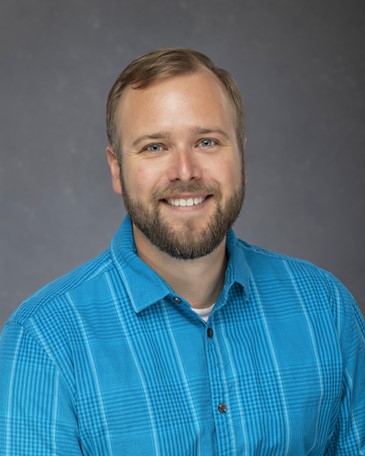
Phillip earned his PhD in entomology from Texas A&M University and has been studying bugs for the past 14 years. Currently, he is a research scientist at the USDA-ARS and has a lab focusing on the genomics of insects that transmit pathogens to livestock. Phillip enjoys investing into his mentored students from various academic backgrounds, so they may achieve academic success and career goals.
Dave Molik
US Department of Agriculture (USDA) Agricultural Research Service (ARS)
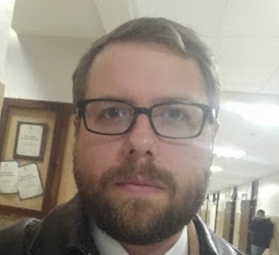
ABOUT: Dr. Molik is a Computational Biologist specializing in Arthropod Genomics and is currently working with the United States Department of Agriculture, Agricultural Research Service. His experience includes a previous role within the same department at the Pacific Basin Agricultural Research Center, Tropical Crop and Commodity Protection Research Unit (USDA ARS PBARC TCCPRU), where he focused on developing Heterochromatin Computational Software. This software is crucial for creating more precise and practical genomic tools for research in combatting agricultural insect pests. Before his tenure at the USDA ARS, he dedicated his efforts to his thesis at the University of Notre Dame. Prior to that, he was a Scientific Informatics Developer at Cold Spring Harbor Laboratory.
John Krolewsky, MD PhD
Buffalo State University, Biology and Data Science and Analytics
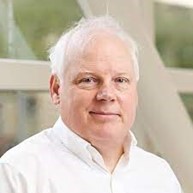
I am a physician-scientist interested in cancer biology and genomics. I was an undergrad at MIT (1977) and an MD-PhD trainee at NYU (1984). I have worked at Columbia University, UC IRVINE and the University of Rochester. I 'retired' in 2022 from Roswell Park Cancer Institute (Buffalo, NY), where I was previously Chair of Cancer Genomics and Genetics. Currently, I am an Adjunct Professor in Biology and Data Science & Analytics at Buffalo State University (Buffalo, NY), which is the most diverse of the SUNY colleges. I am continuing my research on prostate cancer genomics and helping to develop training programs in computational genomics and AI (using GPTs). I am based in Cambridge, MA , but also have a house in Buffalo, on Elmwood Ave.
Olga Novikova, PhD
Assistant Professor of Biology, SUNY Buffalo State University
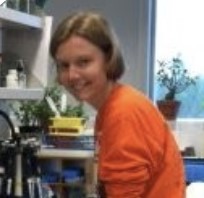
My main research interest is a dynamic of non-LTR and LTR retrotransposons in eukaryotic genomes and their evolutionary impact. Retrotransposable elements play an important role in evolution of eukaryotic organisms. They are ancient, ubiquitous, prevalent, and dynamic components of all eukaryote genomes. The dynamics of the retrotransposon life cycle results in the multiplication of these transposable elements, up to the point where they can occupy major fractions of the genomes, in a wide variety of eukaryotes. By their response to stress, invasiveness, promoter activity, and sheer numbers, as mobile promoters or transcriptional enhancers, retrotransposons can wreak many changes on the genome.
Specialties: Molecular biology, biochemistry, bioinformatics, evolution, phylogenetics, phylogenomics, genetics, functional genomics
April 9, 2024 – SAMC 151 – 5:55PM to 7:05PM
Michael Brugnoni
Solutions Architect Amazon Web Services
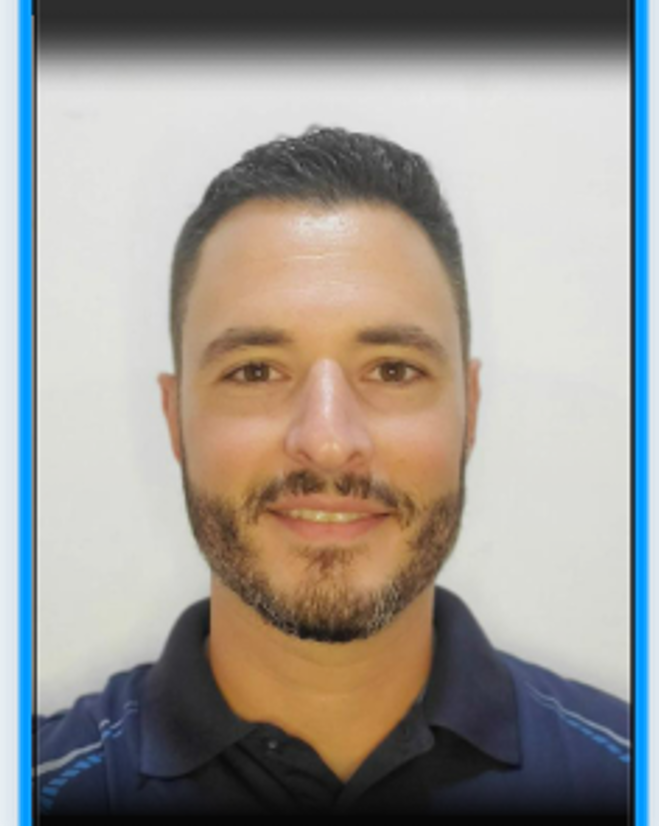
Intro to AWS Cloud
What are the main benefits of cloud vs traditional on-prem infrastructure?
What is the Shared Responsibility model?
What are fully managed cloud services and why are they beneficial?
What is Amazon's main focus?
Mike has over 15 years of experience in IT infrastructure and operations, with a strong focus on UNIX/Linux systems. He graduated from Rochester Institute of Technology with a B.S. in Information Technology. He currently has 6 AWS certifications. Before joining AWS, he led a team of IT Engineers at Excellus BlueCross/BlueShield, where they designed and adopted hybrid cloud architecture. Mike's expertise lies in leveraging his deep technical knowledge to drive innovation and streamline operations.
April 16, 2024 – SAMC 151 – 5:55PM to 7:05PM
Harvey Hyman
Assistant Professor of Instruction at University of South Florida
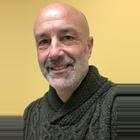
Introduction to Database Architecture Strategy
Problem Definition: Understanding Workflow
Problem Specification: Understanding Data flow
What are we tracking?
What are we tracking about what we are tracking?
What reports do we want to generate?
Dr. Hyman has been an assistant professor of instruction at University of South Florida since 2018. His current research and practice areas are: Enterprise Architecture, Database Architecture, Mobile App Development, and Visualization Design. He teaches courses in Database, Advanced Database, Systems Analysis and Design, and Software Testing. His degrees are: PhD in Decision Science, MBA, JD, BBA in Finance. He has been licensed to practice law since 1993 in the State of Florida, Federal Southern District, Federal Appeals Court and the United States Supreme Court. He is a Senior Chief Petty Officer with over 20 years of service in the United States Coast Guard, and is a veteran of Operation Iraqi Freedom and Enduring Freedom.
April 23, 2024 – SAMC 393– 5:55PM to 7:05PM
(Zoom id 718 634 0613 if not able to come in person)
BRING YOUR LAPTOP TO SAMC 393 if joining in person
Hands-on Lab: Demystifying federal data
How the Census Bureau documents every aspect of the nation's population, schools, governments, economics, and businesses.
How to access the 50+ Census Data Portals and Hubs.
How to navigate 1.5 million tables of data and create custom reports by geographies, topics, survey, and year.
How to fact check stories told with data.
What types of federal data jobs and internships are available and how to apply.
Amy Brombos, EdD
Data Dissemination Specialist
United States Census Bureau

Dr. Amy Brombos serves as the Data Dissemination Specialist for New York State. Her experience in federal service began in 2018 as the Decennial Census Partnership Coordinator covering NYS. Prior to federal service Dr. Brombos spent over 20 years working in academia as a Teacher, District Data Specialist, Academic Researcher, and Adjunct Professor, teaching courses in Data Use for Continuous School Improvement, Accreditation, and Strategic Planning. Dr. Brombos is a graduate of the University of Hawai'i at Manoa and D'Youville University with Master's Degrees in Interdisciplinary Biomedical Sciences and Secondary Science Education, and a Doctorate in Educational Leadership in Higher Education.
Wendy Mix, PhD
Associate Lead, DSA
Associate Professor
SUNY Buffalo State University
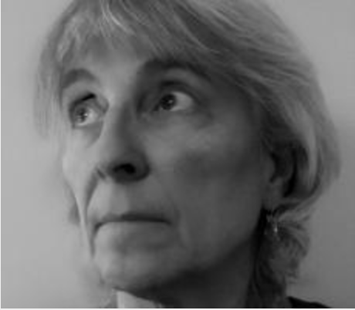
Dr. Wende Mix: Associate Lead, Data Science and Analytics M.S. SUNY Buffalo State. Teaching and project mentorship of DSA students. Developing knowledge of Open Data access and use. Skills and interests include Geospatial Programming (Python, HTML, CSS, JavaScript), Geostatistics, Data summary and analysis, GIS (ArcGIS Pro (formerly ArcGIS Desktop), ArcGIS Online, Portal for ArcGIS, QGIS), Web mapping (Story Maps, web apps, Dashboards, JavaScript APIs).
May 7th, 2024 – SAMC 151– 5:55PM to 7:05PM
Dr. Ernest Fokoue
Professor in the School of Mathematical Sciences at Rochester Institute of Technology.
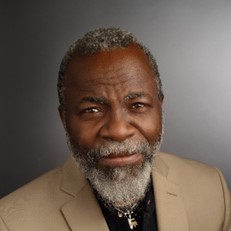
TITLE: Emerging Aspects of Data Science
Classical approaches to Statistical Analysis
State of the Art Methods of Predictive Modelling
Inevitability of the need for Holistic Approaches to Data Science
Unififying power of Non-pinnable nature of Data
Abstract
In the practical exploration of potential patterns underlying data, it usually does it does not take long for one to realize that simple conclusions are almost never satisfactory. As it were, data, real life data, does not lend itself to the kind of reductionist summarization often sought and desired by traditional mathematical scientists. More often than not, there are many facets to the kind of patterns that any dataset might exhibit. This echoes something akin to the passage from classical Newtonian physics to Einsteinian relativistic physics, when one has to admit the limitations of the assumptions of a fixed reference and welcome a new and richer paradigm.
This talk is not as philosophical as the early sentences might suggest, but perhaps conversational and intended to drive home the crucial importance of resorting to a more flexible and more holistic view of modelling and data analytics, one that is no longer uncomfortable for the failure of simplistic and reductionistic summarization, as one needs to embrace the beauty, richness and power of subjectivity in data science!
Dr. Ernest Fokoue is Professor in the School of Mathematical Sciences at Rochester Institute of Technology. He earned his PhD in Statistics at the University of Glasgow in the United Kingdom. He was a postdoctoral research fellow at the Statistical and Applied Mathematical Sciences Institute (SAMSI). Prior to joining Rochester Institute of Technology, he held faculty positions at The Ohio State University and Kettering University. He is co-author of the Springer graduate textbook “Principles and Theory for Data Mining and Machine Learning” and has been intensively and extensively involved in the interface between statistical science and artificial intelligence. He is a strong advocate of a complete approach to statistical machine learning and data science comprising a non-degenerate coverage of applications, computation, methodology and theory (ACMT), the staple of his research and teaching. A passionate lover of mathematical sciences from his earliest childhood, he often summarizes his philosophy as follows: “while the letter of mathematics provides great delight to the seeker/researcher/practitioner, the spirit of this mother of all disciplines bestows experiences of a transcendental, nay ineffable nature. Therefore, seek the latter not the former.''
Some content on this page is saved in PDF format. To view these files, download Adobe Acrobat Reader free. If you are having trouble reading a document, request an accessible copy of the PDF or Word Document.
